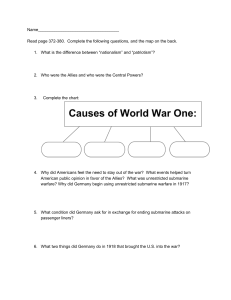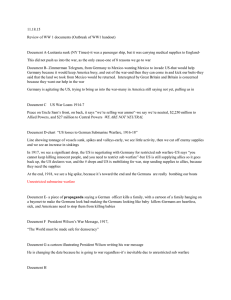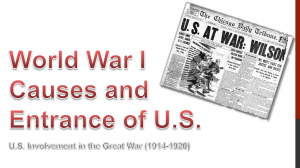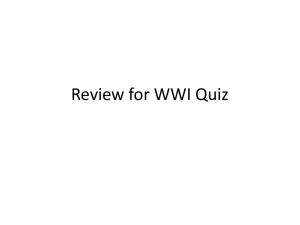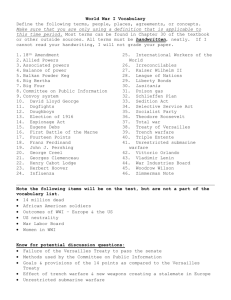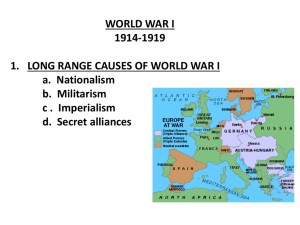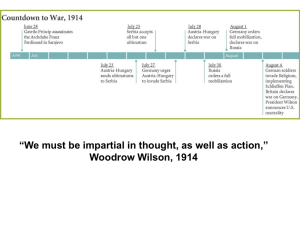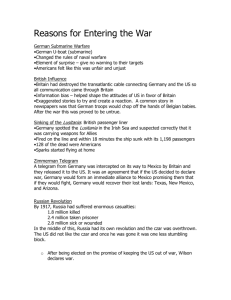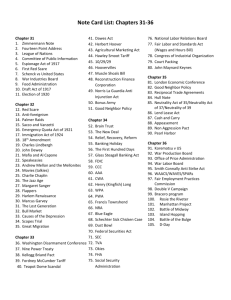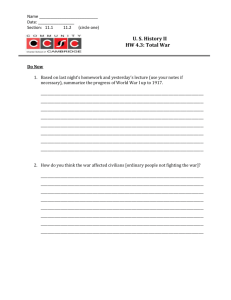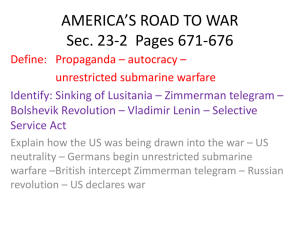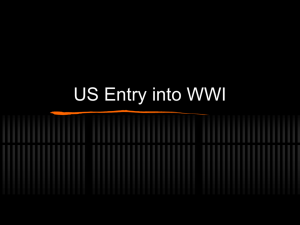Rules of War At Sea
advertisement
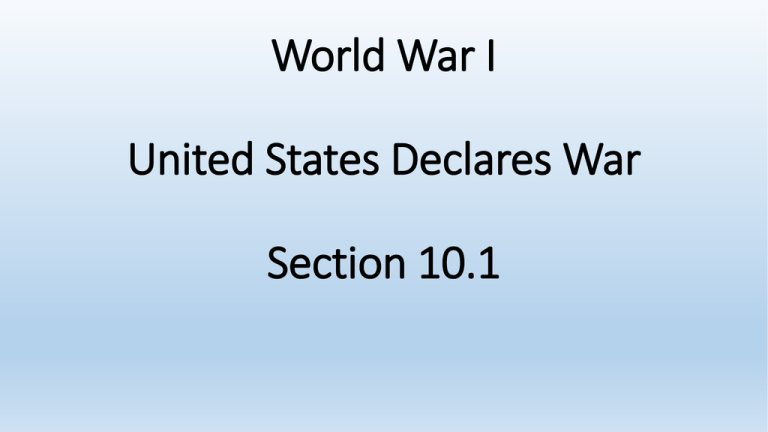
World War I United States Declares War Section 10.1 Don’t write, Listen • America declared neutrality in August 1914 • Britain blockaded Germany; Germany’s surface navy was too weak to break the blockade • Germany submarines targeted British shipping; also attacked neutral shipping, passenger ships, and unarmed ships; often without warning • May 1915, sinking of Lusitania enraged Americans; Wilson protested, but chose not to ask Congress to declare war Write • Germany suspended unrestricted submarine warfare in May 1916 • Early 1917, Germany was suffering from shortages in food and war materials due to British blockade; decided to resume unrestricted submarine warfare - estimated it could force Britain from the war in 6 months American Neutrality • American self-image as a nation that left the troubles of Europe behind • America’s ethnic diversity created mixed feelings about supporting the Allies or the Central Powers • Strong belief in freedom of seas and rights of neutrals to trade with all sides of a conflict • Business opposed the British blockade – wanted to trade with all sides; made $$$ selling war material to Britain and France – German submarines threatened this trade “My Fatherland, My Fatherland, the place so dear to me; Our soldiers brave will try to save, our home across the sea.” American Neutrality • Interventionists: favored America fighting on the side of the Allies • Isolationists: rejected any American involvement in the war, including trading with belligerent powers • Internationalists: U.S. should play an active role in the world, but stay out of the war Zimmerman Note • January 1917 – Germany concerned U.S. might enter war • German foreign minister sent coded telegram offering Texas, Arizona, New Mexico in exchange for support in war against the U.S. • British code breakers (cryptographers) intercepted and leaked the telegram • Z. Note outraged American population; further eroded positive feelings towards Germany History Trivia: One of the • Despite desire to remain neutral, Wilson approved advocates for ROTC was measures to strengthen the military William Oxley Thompson, • National Defense Act – 1916: formally created the the president of Ohio National Guard & Reserve Officers Training Corps State University. (ROTC) • Naval Appropriations Act – 1916: authorized construction of large, modern Navy to rival Britain and Germany • Wilson’s 1916 re-election campaign focused on his commitment to U.S. neutrality • February 1917 – Germany authorizes unrestricted submarine warfare against all shipping approaching Britain; several U.S. ships are sunk without warning • Sinking of unarmed and neutral shipping caused tension between U.S. and Germany • American policy was “freedom of the seas” – any neutral could trade with any power • Germany promised several times not to sink unarmed ships without warning • Decision by Germany to resume unrestricted submarine warfare in Feb, 1917 was major factor in U.S. decision to declare war “The present German submarine warfare against commerce is a warfare against mankind… “But armed neutrality, it now appears, is impracticable. Because submarines are in effect outlaws when used as the German submarines have been used against merchant shipping…” “The world must be made safe for democracy. Its peace must be planted upon the tested foundations of political liberty.” April, 1917 Woodrow Wilson asked for and Congress passed the declaration of war against Germany Assignment • Reminder, Section 10.2 reading guide due next class • Quiz next class
